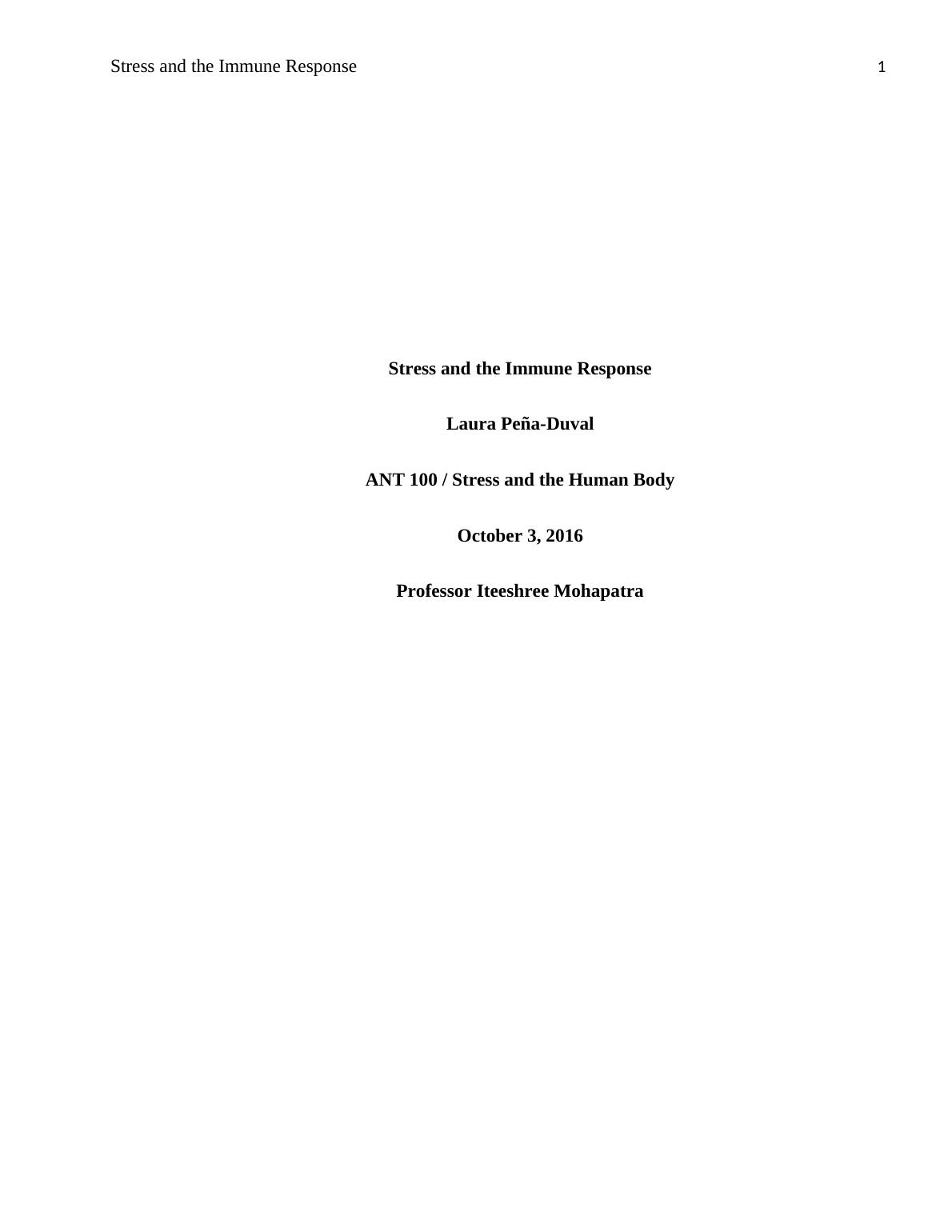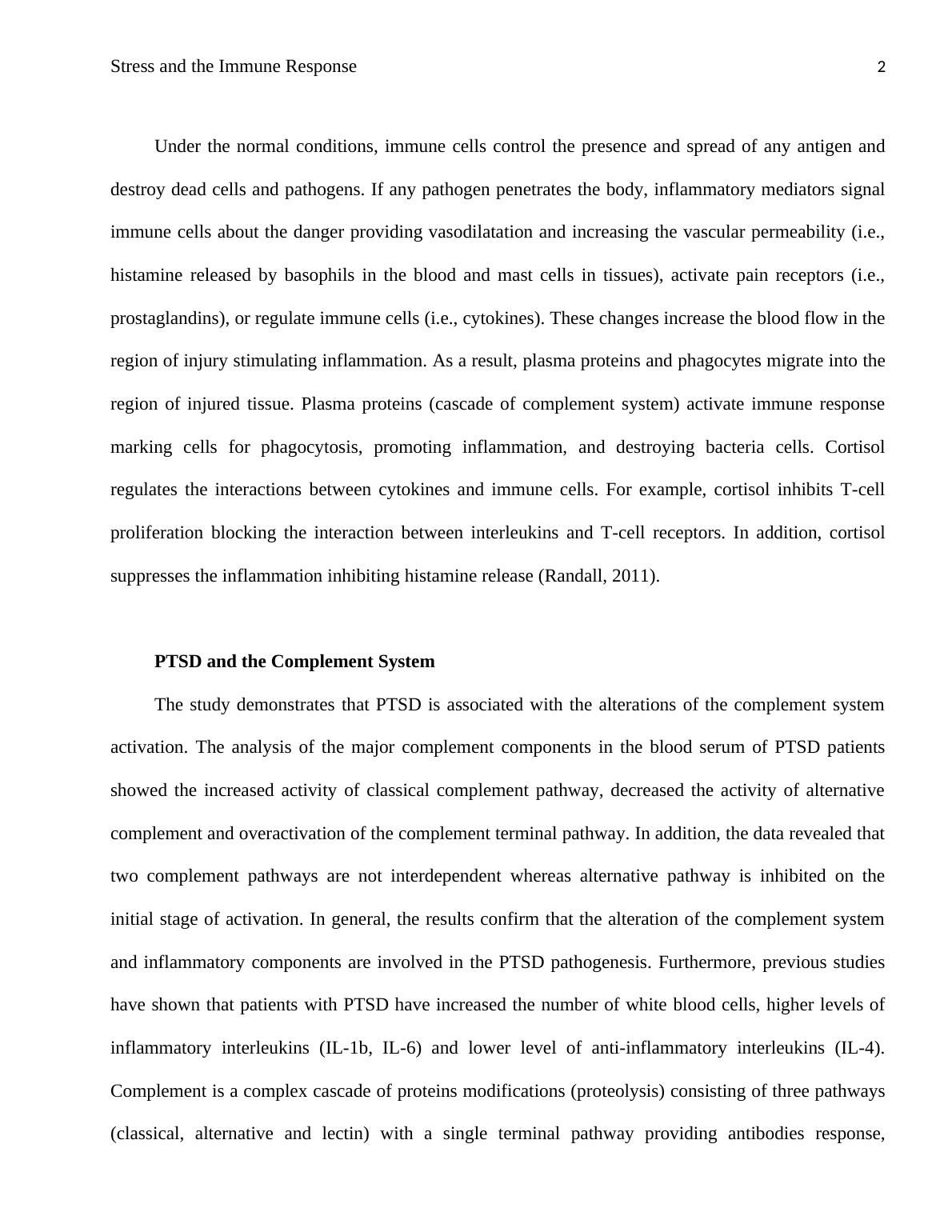Ask a question from expert
Stress and the Immune Response
5 Pages1098 Words460 Views
Added on 2019-09-22
About This Document
This article discusses the effects of stress on the immune response and how it can lead to PTSD. It covers the alterations of the complement system activation in PTSD patients, the relationship between inflammation processes and the brain, and the consequences of the inflamed brain. The article also explains how exposure to a traumatic event causes the alteration of HPA axis and the development of PTSD.
Stress and the Immune Response
Added on 2019-09-22
BookmarkShareRelated Documents
End of preview
Want to access all the pages? Upload your documents or become a member.
Stress and the Immune Response
|3
|1394
|262
Severe Abdominal Pain Case Study
|9
|2316
|85
Cytokines and Chemokines Assignment Sample PDF
|23
|1227
|197
Medical Virology Case Study 2022
|3
|578
|35
Review Literature on Inflammatory Reaction of Brain and Role of IL-33, IL-16, and CD4
|8
|2015
|241
Role of Lymphatic System and Adaptive Immune Response in Bacterial Infection
|12
|2909
|331

